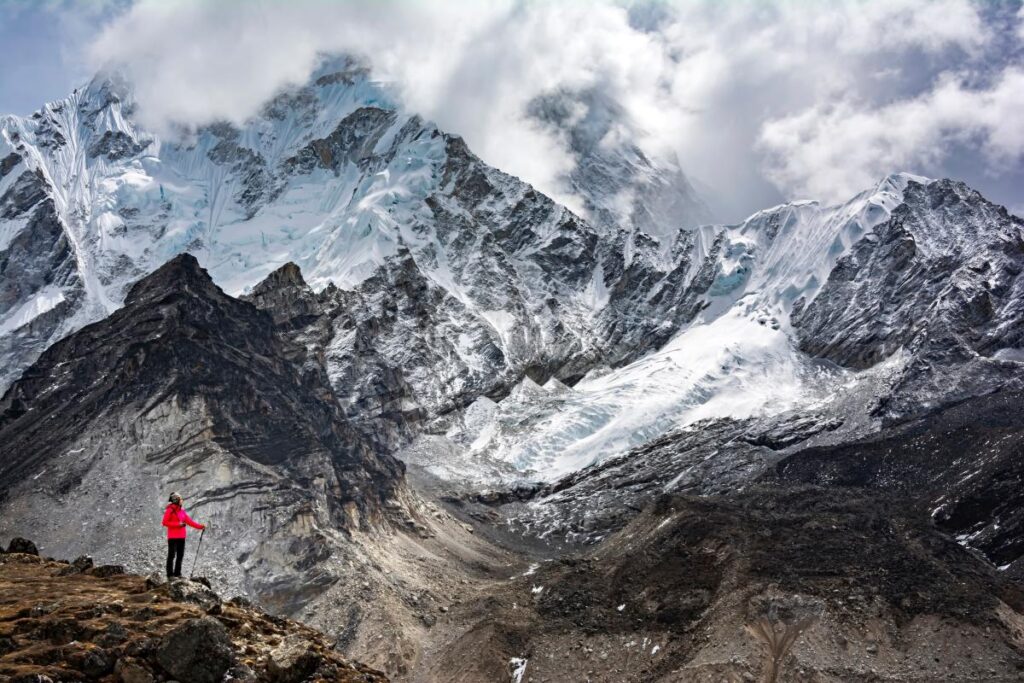In the spring of 2025, Freshta Ibrahimi plans to make history by becoming the first Afghan woman to summit Mount Everest. This endeavor is not merely a personal achievement for the 32-year-old climber, who has a decade of climbing experience and recently tackled Lobuche East in Nepal. For Ibrahimi, reaching the summit symbolizes hope for women living under the oppressive Taliban regime in Afghanistan. Despite the challenges she has faced, she intends to wave a flag of hope and pave the way for other Afghan women to follow in her footsteps toward freedom and empowerment.
Ibrahimi was born in Iran to Afghan parents who fled their homeland during the first Taliban regime. Her early fascination with the mountains stemmed from her parents’ stories of their own resourcefulness in navigating the rugged terrain around them in Afghanistan. When political changes allowed her family to return to Afghanistan in 2001, Ibrahimi noticed both progress and oppression in her new surroundings. While some gender-based restrictions had relaxed, societal pressures still stifled the aspirations of women and girls. Nonetheless, she discovered a passion for sports and the outdoors, including kite running, and found unexpected support from her family to pursue education and ambitions that were often taboo for many young girls.
As a teenager, Ibrahimi capitalized on the support of her family to seek higher education at the American University of Afghanistan. Here, she connected with Afghanistan’s first female mountaineering group while working for Ascend, a U.S. non-profit aimed at empowering Afghan girls through sport. This opportunity not only fostered her love for climbing but also positioned her to help recruit and support other passionate young women in traversing Afghanistan’s mountainous terrains. Despite the country’s rich potential for climbing, a harsh environment and security challenges hindered many from exploring its vast mountain ranges.
The resurgence of the Taliban and escalating political turmoil in Afghanistan severely impacted Ibrahimi’s ability to pursue her passion. In 2019, she sought refuge in the United Kingdom, and following the rapid Taliban takeover of Afghanistan in August 2021, conditions for women in her home country worsened dramatically. The regime enforced stringent restrictions that impeded women’s freedoms, forcing many into silence and subjugation. In stark contrast to her aspirations, Ibrahimi observed that women now faced insurmountable barriers, which she describes as a metaphorical wall. It is this urgency that fuels her desire to summit Everest, lift Afghan women’s spirits, and provide a visible symbol of strength and resilience against oppression.
As she prepares for her demanding climb, Ibrahimi faces significant logistical and financial challenges. The cost of permits, training, and necessary climbing equipment adds up to a substantial burden. To facilitate her journey, she has turned to crowdfunding and social media, emphasizing both physical and mental fortitude in her training regimen. By tackling high-altitude exercises while acclimatizing to the conditions she will face on Everest, she equips herself to meet the formidable challenges of the climb ahead. Ibrahimi’s Everest expedition reflects a commitment to not only personal achievement but also raising awareness about women’s rights in Afghanistan.
However, achieving this summit is just one aspect of Ibrahimi’s mission. She has also launched The Unstoppable Project, which aims to create a support network for women facing obstacles in accessing outdoor activities. Inspired by her own healing experiences in nature, she plans to facilitate group hikes, climbing events, and kayaking sessions to empower women and cultivate a sense of community and resilience among them. By conducting local excursions for female refugees in the UK, Ibrahimi embodies her commitment to improving the lives of others and hopes that her journey culminates in fostering strength in a new generation of women who dare to rise against adversity. Standing atop Mount Everest will represent not only a personal victory but also the beginning of a greater journey for herself and countless Afghan women.

